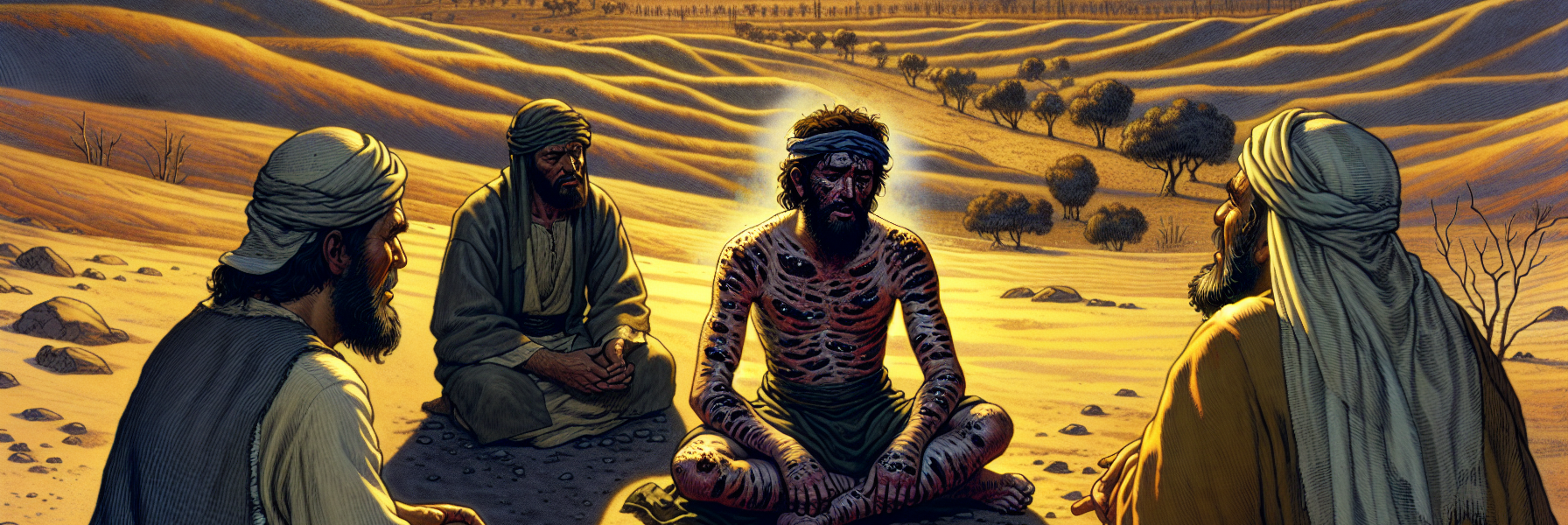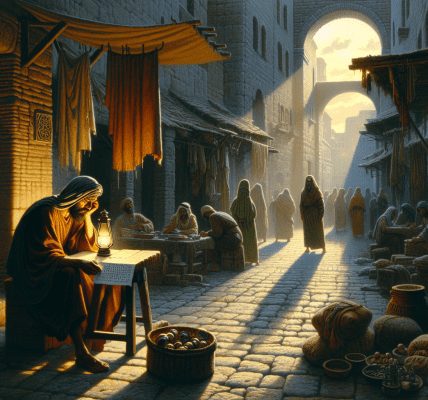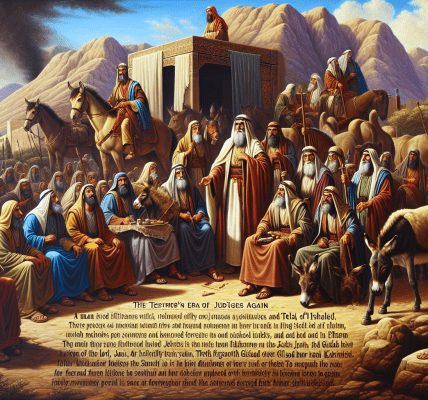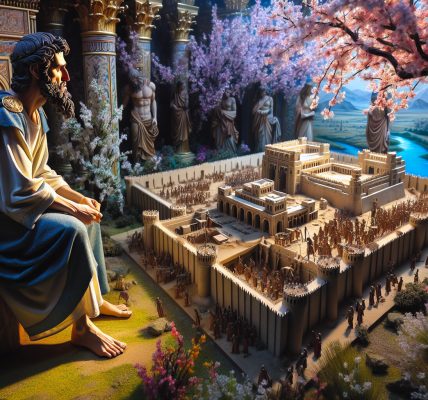**The Question of the Wicked’s Prosperity**
The sun hung low over the land of Uz, casting long shadows across the barren fields where Job sat among the ashes, his body covered in painful sores. His three friends—Eliphaz, Bildad, and Zophar—had fallen silent, their arguments exhausted. They had insisted that suffering was always the result of sin, that the wicked never prospered, and that Job’s calamities proved his hidden guilt. But Job, his spirit weary yet unbroken, lifted his voice once more, his words heavy with the weight of hard-won wisdom.
**Job’s Lament and Observation**
“Listen carefully to my words,” Job began, his voice rough yet steady. “Let this be the comfort you offer me. Bear with me while I speak, and after I have spoken, mock on if you must.”
He turned his gaze toward the horizon, where the fading light painted the sky in hues of crimson and gold. “Why do the wicked live on, growing old and increasing in power? Their children are established before them, their offspring secure in their sight. Their homes are safe from fear; the rod of God does not rest upon them.”
Job’s words carried the sharp edge of truth, cutting through the silence. He had seen it with his own eyes—the ruthless and the arrogant flourishing like green trees, their wealth multiplying, their tables laden with abundance. “Their bulls never fail to breed; their cows calve without loss. Their little ones dance like lambs, and their children skip to the music of timbrel and lyre.”
**The Illusion of Divine Judgment**
He clenched his fists, his voice rising with passion. “They spend their years in prosperity and go down to the grave in peace. Yet they say to God, ‘Leave us alone! We have no desire to know Your ways. Who is the Almighty, that we should serve Him? What would we gain by praying to Him?’”
Job’s breath came heavily as he pressed on. “But their prosperity is not in their own power! The counsel of the wicked is far from me. How often is the lamp of the wicked snuffed out? How often does calamity come upon them, the fate God allots in His anger?”
He paused, his eyes burning with the injustice of it all. “You say, ‘God stores up the punishment of the wicked for their children.’ But let Him repay the wicked themselves, so they may know it! Let their own eyes see their destruction; let them drink the wrath of the Almighty. For what do they care about the families they leave behind when their own months are cut off?”
**The Mystery of God’s Ways**
Job’s voice softened, weighed down by sorrow. “Can anyone teach knowledge to God, since He judges even the highest? One man dies in full vigor, completely secure and at ease, his body well-nourished, his bones rich with marrow. Another dies in bitterness of soul, never having tasted prosperity. Yet side by side they lie in the dust, and worms cover them both.”
He looked at his friends, his gaze piercing. “I know your thoughts, the schemes by which you wrong me. You say, ‘Where is the house of the great man, the tent where the wicked lived?’ Have you never asked travelers? Do you not recognize their accounts—that the evil man is spared from the day of calamity, that he is delivered from the day of wrath?”
**The Futility of Human Judgment**
“Who denounces their conduct to their face? Who repays them for what they have done? They are carried to the grave, and watch is kept over their tombs. The soil in the valley is sweet to them; all follow after them, and a countless throng goes before them.”
Job’s voice trembled with frustration. “How then can you console me with your empty notions? Your answers are nothing but falsehood!”
The wind whispered through the desolate land as Job’s words hung in the air. His friends had no reply, for he had shattered their simplistic view of divine justice. The wicked often prospered in this life, and the righteous often suffered—this was the painful truth Job laid bare. Yet in his anguish, he did not curse God. Instead, he wrestled, he questioned, and in doing so, he honored the mystery of the Almighty’s ways.
And so, beneath the darkening sky, Job sat in silence once more, waiting—not for the explanations of men, but for the voice of God Himself.




